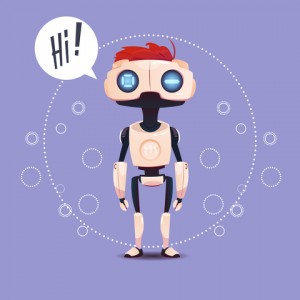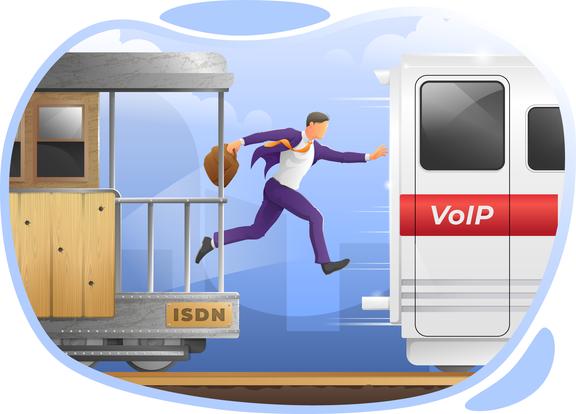Artificial Intelligence
Posted by Voipfone on November 1, 2017
 AI is the flavour of the year as far as tech trends go. It’s hard to attend any tech event or read any tech bulletin and not see someone pontificating about it. So I thought it time to add to the pile.
AI is the flavour of the year as far as tech trends go. It’s hard to attend any tech event or read any tech bulletin and not see someone pontificating about it. So I thought it time to add to the pile.
In 2015 AlphaGo, Google’s DeepMind project, beat the world’s best Go player, but last week a new version, AlphaGo Zero, beat that original version 100 to 0 without being taught anything about the game except the rules. This is impressive, particularly when you hear that the programme taught itself from scratch by playing itself 30 million times – all of which took only a few days. In the process, it invented successful moves not seen in thousands of years of human playing. So we have real machine learning, albeit in a specific task. The fact that it self-learned from scratch gives rise to the hope – and the incessant PR – that AI can move from the specific to the general. The geeks have a new (but old Latin) name for this of course; tabula rasa – blank slate learning. Get used to it.
Really wild claims are now being made for AI; it’s going to put us all out of jobs and it’ll do it next year apparently. Neither are true, although the first fear is real to an extent. For example, it’s easy to agree that self-drive cars will remove the need for a lot of taxi, lorry and delivery drivers. The problem is that people are utterly hopeless at predicting the future; we get predictions about the stuff we know about wrong and we utterly miss the things that come out of the blue – the internet and Trump being great examples. I remember seeing a headline in my dad’s Daily Express predicting free electricity on the introduction of the UK’s first nuclear reactor.
And, of course, none of these claims are new, AI for medical diagnosis in doctor’s surgeries was being worked on in the 1970s – it feels like is should be easy, just tell the bot where it hurts and then go through a decision tree. But true to form it’s proven rather harder to crack AI than predicted and some things that humans can do instinctively as mere babies – like recognise a face, stand up, point at a dog – computers have enormous difficulty with.
While we’re on self-drive cars there’s a particular set of very human puzzles for an AI that go under the category of ‘the trolley problems‘.
The general problem is about choosing between bad results – if your car’s AI can save your life by ploughing into a crowd of very soft humans instead of a very hard wall, should it? Should you, as the owner, be able to programme the car so that it never calculates the value of your life compared with others no matter how many might otherwise die? And if it does, who is now liable for the multimillion pound compensation claim, is it you, your insurers or Google?
At the moment, the communication’s industry is wondering what this means for them and there’s a fear that the answer is “not much.” In the 1980s BT introduced something called Intelligent Networks but it was a misnomer, IN was just a set of rules to route call traffic – the only intelligence used was by the human designing the system. Telephone wires and radio masts will carry the data that AI lives off but telephony service providers have no access to the data itself. The winners will be Google and Facebook and the like – those that have access to what is being called ‘Deep Data’ which is itself being called ‘the new oil’. Google, of course, has the entire internet and almost all its users to mine (drill for?) so we can expect them to make the best of it.
As for Voipfone, who knows, maybe eventually AI tech will reach down as far as us. The first offerings are likely to be in the area of customer service, voice recognition and fault diagnostics. But the standard test for AI is the Turing Test which still seems a long way off being passed and until that moment arrives our customer service people are very safe.
And so too are the doctors – for a while at least.



